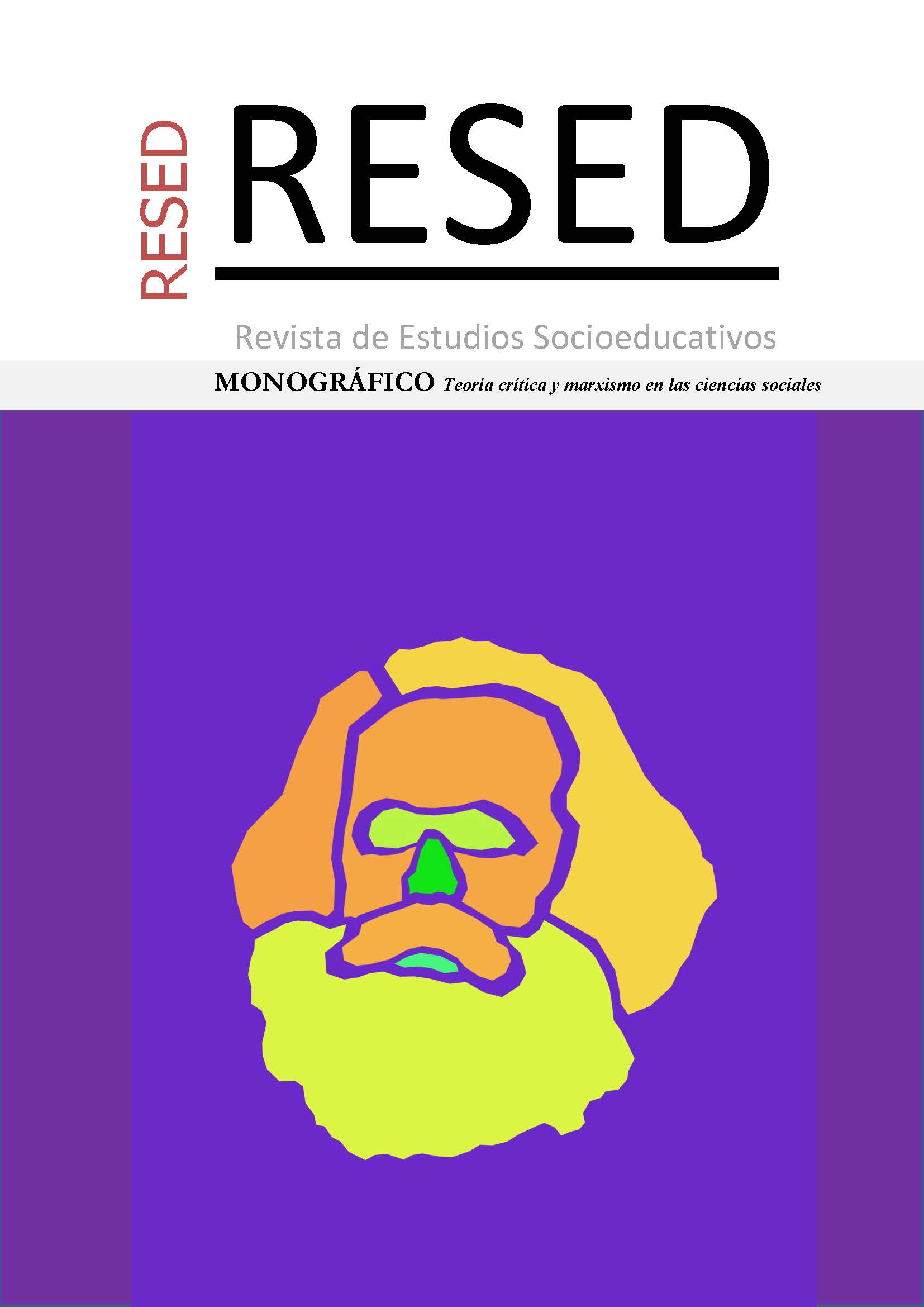Traces of blood and fire: bionecropolitics and youth murder in Latin America written by José Manuel Valenzuela Arce

DOI
https://doi.org/10.25267/Rev_estud_socioeducativos.2023.i11.30Info
Abstract
"Capital comes into the world dripping blood and mud from every pore, from head to toe" (Marx 2014, 646) and reproduces itself, according to Valenzuela, with traces of blood and fire. This book is in line with a critique of capitalism as an economic model that resorts to necropolitics in order to reproduce itself. Specifically, it is a model that develops strategies that produce life and death, that determine who should or deserves to die. During the 123 pages of his book, Valenzuela tells us about precarious lives, lives that can be sacrificed, disposable lives, lives that are expendable, lives on the edge, young lives exposed on the verge of juvenicide, death, corruption, unimaginable pain; all of these are destructive features of capitalism and the globalised condition of the world. Traces of blood and mud, juvenicide, classism and inequality, biopolitics, necropolitics, snuff torture and bioresistances are some of the concepts that the author brings to the discussion and which serve to define and analyse current social problems in Latin America which, although they may seem alien to us Europeans, are correlated with the moment of multiple crises in which we find ourselves and where the death of young people is not physical, but moral. In this line, Valenzuela mentions Carles Feiza (2015) who, from the set of strategies of social exclusion, economic juvenicide (destruction of youth employment) and symbolic juvenicide (media and cultural stigmatisation of young people), gives content to what he himself calls moral juvenicide.
In order to cover such a complex subject, the author appeals to cases of crime, violence and also the resistance of young people in Latin America; scenarios that have occurred in recent decades and which are presented in this book as references that make explicit current phenomena to be problematised by the academy. The aim is to study the past in order to explain the present and to understand how power relations function from the perspective of biopolitics (control/resistance of the body) and bioproxaemia (symbolic dimension of the body-space/territory relationship). Finally, the author ends by calling for the struggle for freedom as a commitment to life in the face of the strategies of death that neoliberal capitalism systematically reproduces.
José Manuel Valenzuela Arce, a sociology graduate, is currently a professor and researcher in the Department of Cultural Studies at El Colegio de la Frontera Norte. His work has been of great importance for the understanding of the socio-cultural processes that define the border between Mexico and the United States, as well as for explaining youth movements in both countries, a field in which he is an expert. He stands out mainly for his great ability to create and apply concepts, filling them with content that helps us to describe and understand current phenomena.
Keywords
Downloads
How to Cite
License

This work is licensed under a Creative Commons Attribution-NonCommercial 4.0 International License.






